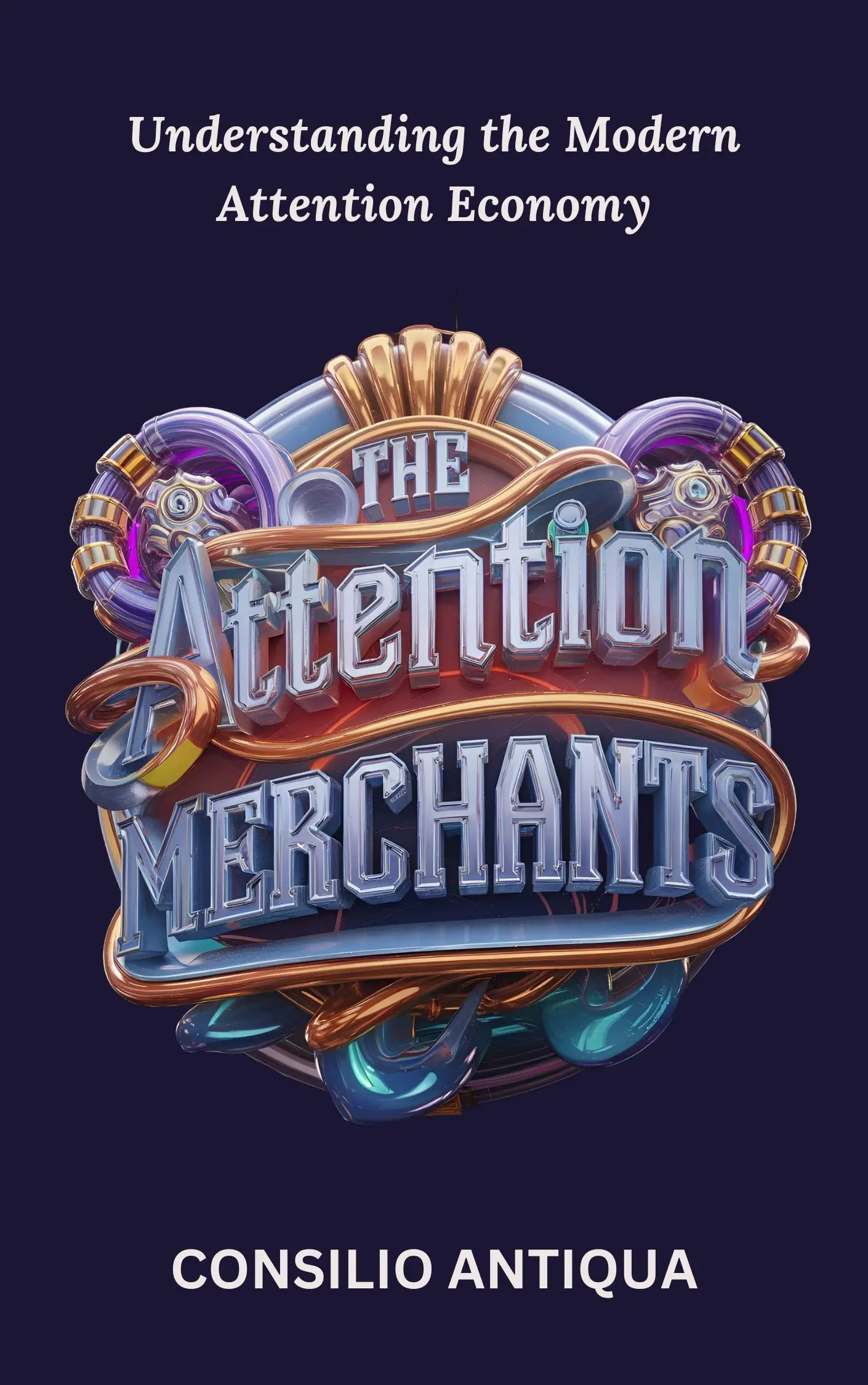
The Attention Merchants | Chapter Reclaiming Our Attention: Conclusion and Future Directions
Chapter Reclaiming Our Attention: Conclusion and Future Directions
This part synthesizes the key findings presented in this appendix and explores potential pathways for navigating the complexities of the attention economy. Recognizing the pervasive and often insidious nature of attention capture, it emphasizes the need for proactive strategies to reclaim individual agency, foster more mindful technology use, and promote a healthier digital environment.
The research summarized here underscores the profound influence of the attention economy on our cognitive processes, emotional well-being, and societal dynamics. Attention, a finite and valuable cognitive resource, has become a highly sought-after commodity in the digital age. Companies and platforms employ sophisticated technological tools and persuasive design techniques to capture and retain our attention, often exploiting cognitive biases and vulnerabilities. This relentless pursuit of attention has far-reaching consequences, impacting individual mental health, consumer autonomy, the spread of misinformation, and the fabric of social interaction.
Moving forward, navigating the attention economy requires a multi-pronged approach that empowers individuals, promotes responsible technology design, and fosters a more ethical and equitable digital landscape. Several key directions for future research and action emerge from this analysis:
Promoting Digital Literacy and Critical Thinking: Cultivating digital literacy is paramount in equipping individuals with the critical thinking skills necessary to navigate the complexities of the attention economy. This includes fostering awareness of persuasive design techniques, understanding the influence of algorithms on information consumption, and developing the ability to evaluate the credibility and veracity of online content. Educational initiatives and public awareness campaigns can play a crucial role in empowering individuals to become more discerning consumers of information and more conscious users of technology.
Developing Tools and Technologies for Attention Management: Technological solutions can also play a role in mitigating the negative impacts of the attention economy. This includes developing tools and apps that empower users to monitor and manage their screen time, filter distractions, and cultivate more mindful technology habits. Furthermore, exploring alternative platform designs that prioritize user well-being over engagement metrics could pave the way for a more human-centered digital environment.
Establishing Ethical Guidelines and Regulatory Frameworks: The ethical challenges posed by the attention economy necessitate the development of clear ethical guidelines and regulatory frameworks. This includes establishing industry standards for responsible data collection and use, promoting transparency in algorithmic curation, and addressing the spread of misinformation and harmful content. Furthermore, exploring the concept of "attention rights" could provide a legal framework for protecting individuals from manipulative practices and ensuring greater control over their own cognitive resources.
Fostering Public Discourse and Collective Action: Addressing the systemic challenges of the attention economy requires open and informed public discourse. Fostering dialogue among stakeholders, including technology developers, policymakers, researchers, and the public, is essential for identifying effective solutions and building consensus around ethical guidelines. Collective action, including advocacy for policy changes and consumer boycotts of unethical practices, can further exert pressure on companies to prioritize user well-being over profit maximization.
By pursuing these interconnected strategies, we can strive towards a future where technology empowers individuals rather than exploiting their vulnerabilities. Reclaiming our attention requires not only individual effort but also collective action to reshape the digital landscape and create a more humane, equitable, and sustainable attention economy. The research summarized here provides a crucial foundation for this ongoing endeavor, equipping us with the knowledge and tools necessary to navigate the complexities of the digital age and reclaim agency over our own cognitive lives.
